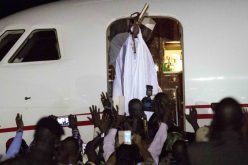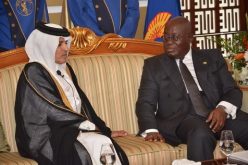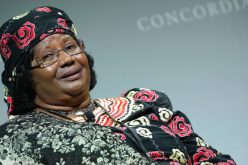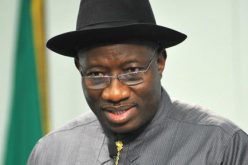ORLANDO, Fla. — In the pews of the First Baptist Church of Orlando, where thousands of evangelical Christians gather on Sundays to worship and sing, a change of heart is happening on the once toxic issue of immigration.
Two years ago, national evangelical leaders began to speak out in favor of legislation to give legal status to immigrants in the United States illegally. Now, as Congress is about to start a debate on overhauling the immigration system, conservative Christians, once inclined to take a hard line on immigrants they viewed as lawbreakers, are consulting their Bibles and coming around to the pastors’ view.
“I feel I would be representative of a typical longtime Baptist, one who grew up in the Baptist Church, who was raised in an evangelical family, and I would identify myself as a conservative Republican,” said Jay Crenshaw, 36, a lawyer in Orlando who attended a service at the megachurch last Sunday. “And I can tell you how much my views have changed.”
For Mr. Crenshaw, as for many evangelicals, the rethinking came as a result of personal encounters with immigrants in church who were trying to navigate the maze of the nation’s immigration laws — in his case, a Colombian friend who turned out to be here illegally.
“It seems something’s broken about the system,” Mr. Crenshaw said.
The shift among evangelical Christians could have a powerful effect on the fight in Washington, as Republican lawmakers, including many who have opposed any amnesty for illegal immigrants, look to see how much they can support measures to bring those immigrants into the legal system without alienating conservative voters.
Evangelical leaders, seeing the opportunity to expand their influence on a social issue beyond abortion and same-sex marriage, have broadly united this year behind a path to citizenship for immigrants in the country illegally. They are conducting an ambitious push to sway Congress, including ad campaigns on Christian radio stations in five states, meetings with lawmakers and a challenge to churchgoers to pray every day for 40 days using Bible passages that speak of welcoming the stranger.
On Wednesday, evangelical pastors will converge on Washington for a day of prayer and lobbying on Capitol Hill.
Guiding the campaign is a coalition called the Evangelical Immigration Table, which includes the top pastors of more than two dozen evangelical denominations and at least 20 heads of Christian colleges and seminaries. “It is very remarkable the degree to which there is consensus,” said Galen Carey, the vice president of government relations for the National Association of Evangelicals, an umbrella group for the churches. No prominent pastor has spoken out against the immigration effort, although some pastors of the largest churches have remained silent.
Accord has been less broad among the faithful. In a poll released in March by the Public Religion Research Institute and the Brookings Institution, white evangelical Protestants were the least likely of the religious groups surveyed to support a path to citizenship for immigrants here illegally, with 56 percent of them favoring that approach. Among Hispanic Catholics, the group expressing the most support, 74 percent said they would allow those immigrants to become citizens. Only 41 percent of white evangelicals who identify with the Tea Party supported a path to citizenship, according to the survey.
But many pastors in largely white churches have been spurred to action on immigration by preachers in Hispanic and immigrant churches, who have seen rapid growth in their congregations and have ministered to many followers who spoke of living in fear because they lacked legal papers.
For the Rev. David Uth, the head pastor of First Baptist Orlando, there was no mistaking the evolution of his traditionally white congregation, as he discovered in recent years that immigrants speaking at least 32 different languages had flocked to his doors. Mr. Uth is one of the pastors going to Washington this week.
His church offers ministry in seven foreign languages, with simultaneous translation of Sunday services in Spanish and Portuguese and a separate Brazilian service on Sunday evenings.
“The stories out there in the pews are stories of people from all over the world who have made friends and who have become close with people here,” Mr. Uth said after his service last Sunday. “I think that’s why there’s movement in this church, there’s momentum, there’s an openness to try to do something to address their needs.”
Mr. Crenshaw said his views started to shift when his Colombian friend, a white-collar professional who had been living in Florida for years, asked for help after being arrested for driving without a license. Mr. Crenshaw said he realized that his friend, an active church member who was supporting his mother and a brother, could be deported.
“The tension is compassion on one hand and rule of law on the other,” said Mr. Crenshaw, who went with his friend to court, where the matter was resolved without drawing the attention of any immigration authorities.
“Once you’ve walked with someone and put a face and family behind the immigration issue, it very much personalizes it,” he said. “You do find yourself with a lot of compassion.”
Stewart Hall, 70, a member of First Baptist Orlando for more than three decades, said his views changed gradually, as he moved to sit in pews near the rear of the church where immigrants new to the congregation chose to pray. “It occurs to me that if Jesus was sitting next to me, he would not care whether they were illegal or legal,” he said.
“Take me back 10 years ago, and I had this really hard outer shell about it,” Mr. Hall said. “Line ’em up and shoot ’em, and by that I really meant pack them up and get them out of here.”
But, he said, “my walk with Christ has softened my view.”
While advocating a path to citizenship, a set of principles created by the Evangelical Immigration Table reflects conservative values, calling for tough enforcement measures to secure the borders.
Matthew Soerens, an organizer of the prayer campaign, said that more than 700 churches nationwide had asked for some of the 75,000 bookmarks the coalition is distributing, which serve as guides to Bible passages to study during the 40-day challenge.
The campaign also encourages evangelicals to meet with their federal lawmakers to show their support for those who favor changing immigration laws and to prod those who do not, especially Republicans.
Senator Marco Rubio, a Florida Republican who is part of a bipartisan group of senators writing an overhaul bill, has received visits and calls to his Florida offices. Mr. Rubio said he welcomed the activism.
“Faith-based leaders help remind us that we are dealing with real human beings here with God-given dignity,” he said.
Representative Ander Crenshaw, a Republican from Jacksonville who has firmly opposed any amnesty for illegal immigrants, agreed to have lunch last week with a delegation from evangelical churches in his city. Travis Trice, one of those attending, said Mr. Crenshaw, an Episcopalian who is unrelated to Jay Crenshaw, had agreed to pray on the issue.
Representative Crenshaw said afterward only that he was meeting with many groups to hear their views. “With an estimated 11 million individuals residing in the country illegally,” he said, “it is clear that United States immigration policy is badly in need of reform.”
NY Times











